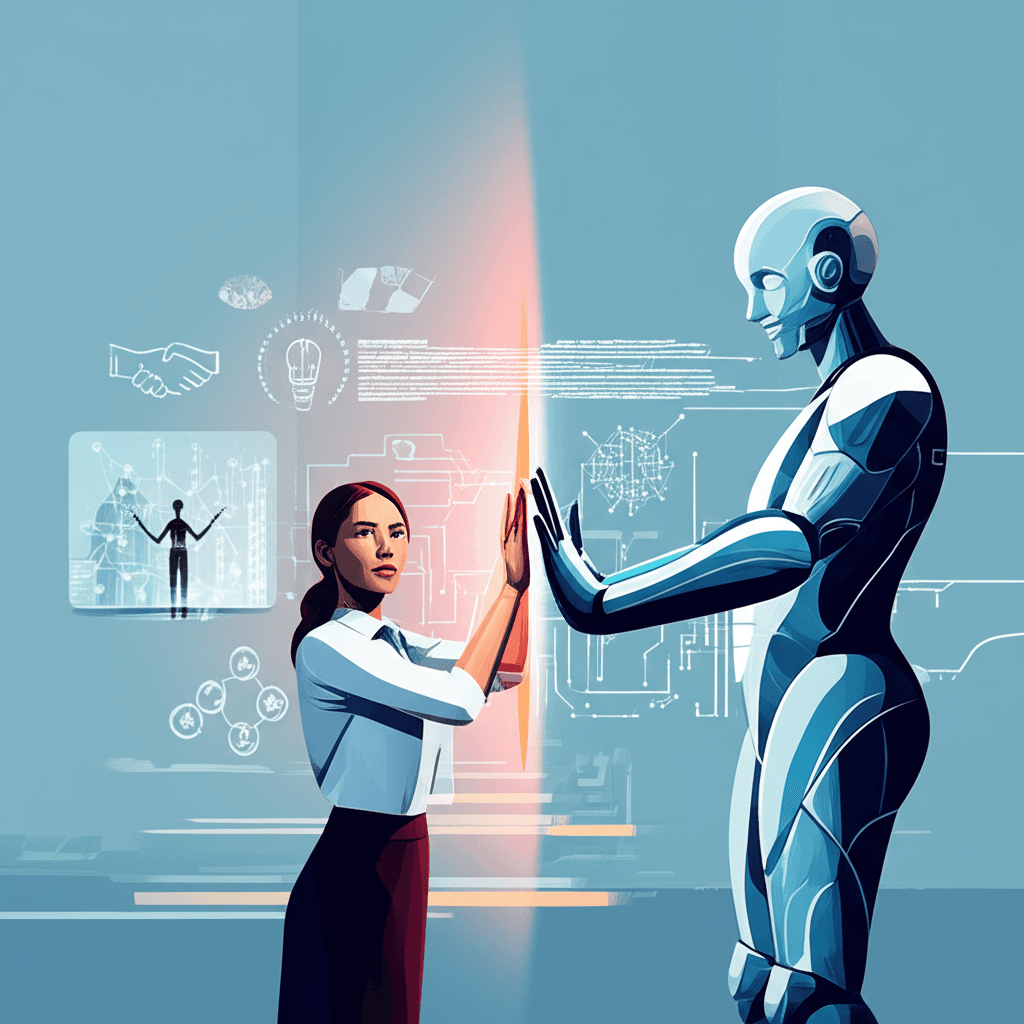Workers Reject AI Automation from Many YC Startups, Stanford Study Reveals
A Stanford study finds many YC AI startups are building tools for tasks workers actively resist automating.
June 17, 2025

A significant portion of AI startups emerging from the influential incubator Y Combinator may be focused on solving problems that workers do not want automated, raising questions about the alignment of venture capital-backed innovation with real-world needs. A recent Stanford University study highlights this disconnect, finding that 41% of Y Combinator's AI startups are developing capabilities for tasks that the U.S. workforce has little desire to see automated.[1] This revelation comes as Y Combinator and the broader tech industry double down on artificial intelligence, with more than half of the companies in recent cohorts leveraging AI as a core component of their business.[2][3][4] The findings suggest a potential misallocation of resources and talent, pouring innovation into areas of resistance while neglecting opportunities where automation would be welcomed.
The Stanford study, titled 'Future of Work with AI Agents,' surveyed 1,500 workers and 52 AI experts, creating a framework that categorizes tasks based on workers' desire for automation and the technical feasibility of AI systems to perform them.[1] The analysis revealed that a substantial number of YC companies are concentrated in what the researchers termed the "Low Priority Zone" and "Automation 'Red Light' Zone," where AI is capable but workers prefer human involvement.[1] According to the study's authors, current investment trends are heavily skewed toward software development and business analysis, while many tasks that workers would gladly offload remain under-addressed.[1] This points to a fundamental gap between the solutions being built in Silicon Valley and the day-to-day realities of the American workforce, which is more interested in automating low-value, repetitive tasks to free up time for more meaningful work.[1]
The surge in AI-focused startups within Y Combinator's batches is undeniable, reflecting a broader market trend sparked by advancements like OpenAI's ChatGPT.[2] In the Winter 2024 batch, approximately two-thirds of the 248 companies integrated AI, a significant jump from previous years.[3][5] This trend has only intensified, with nearly half of the startups in the Spring 2025 cohort building or designing AI agents.[2] Y Combinator has actively encouraged this direction, issuing "Requests for Startups" (RFS) that champion ideas for "full-stack AI companies" designed to automate entire industries rather than just selling tools to existing players.[6] This strategy aims to create new, hyper-efficient companies staffed by AI agents that can outcompete incumbent businesses.[6] While this approach reflects a bullish outlook on AI's transformative potential, it also fuels the concern that the focus is on disruption for its own sake, rather than addressing explicitly stated needs from the workforce it intends to impact.
The implications of this potential misalignment are significant for both the AI industry and the future of work. For startups, building products that face user resistance is a well-known path to failure, a core tenet long preached by Y Combinator co-founder Paul Graham, who emphasized the critical importance of "making something users want."[7] If a large segment of the market actively does not want a particular form of automation, the path to product-market fit becomes fraught with challenges. For the workforce, the influx of AI tools designed to automate tasks they prefer to do themselves could increase job-related anxiety and dissatisfaction. Surveys indicate that while many Americans worry about the impact of automation on job opportunities, they are less concerned about their own specific roles being replaced, suggesting a complex relationship with the technology.[8][9] Workers are generally open to automation that eliminates drudgery, but value human skills like creativity, social interaction, and complex decision-making—areas that are more difficult to automate and that many feel should remain in human hands.[10]
In conclusion, the heavy investment in AI by incubators like Y Combinator represents a powerful bet on the future of technology and business. However, the data suggests a critical need for introspection and realignment. The focus on what can be automated, rather than what should be automated from a human-centric perspective, may be leading a significant portion of the startup ecosystem down a path of solving the wrong problems. While the pursuit of disruptive innovation is a hallmark of Silicon Valley, long-term success and positive societal impact will likely depend on closing the gap between technological capability and human desire. The challenge for Y Combinator and the AI industry at large will be to channel the immense talent and capital toward solutions that are not only technologically impressive but also genuinely desired by the people whose work they aim to transform. This requires a deeper understanding of user needs and a more nuanced approach than simply automating every task possible.